Water Saving at Clarendon House Residence
By Elaine Woodbridge

I went behind the scenes at Clarendon House for a fascinating tour to see how UCT staff and students are working to save water at the Residence.
Poster campaign and good citizenship
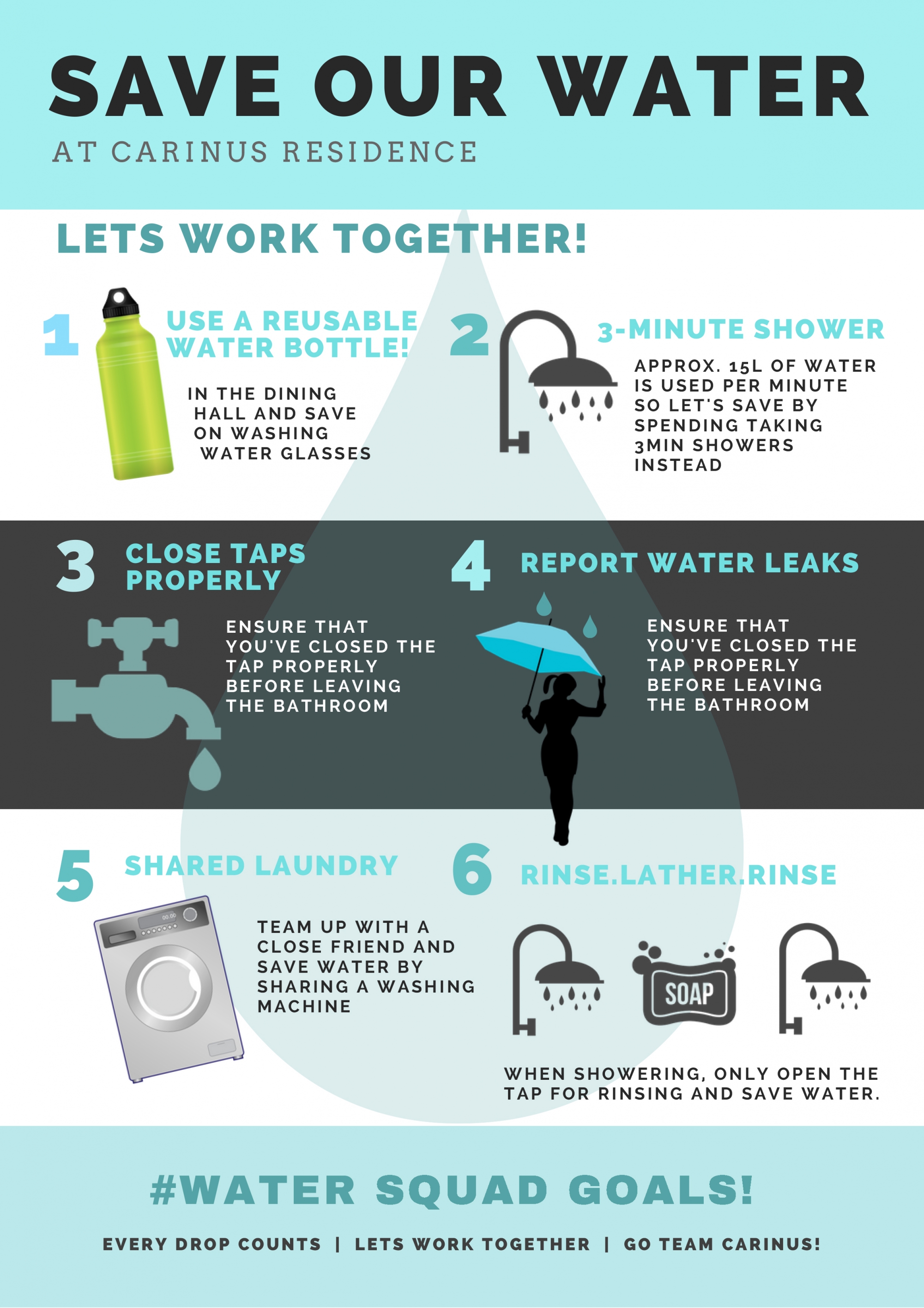
Winner of the student poster competition. Design: Mareldia Kader (Carinus Res) |
On arrival at Clarendon Residence with Senior Manager: Residence Facilities, Glenn Von Zeil, he points out the poster on the front door showing Theewaterskloof Dam and giving the current dam level. It’s there to catch the attention of staff and students entering the residence and is updated weekly with the latest pictures of the dam and water level information. ‘Keeping water-saving in mind is one of the challenges’, says Glenn. As we go inside the residence, in the main foyer are more posters, and in fact they are everywhere, in kitchens, bathrooms and corridors at Clarendon House. ‘Following an emergency water meeting in March, we ran a student poster competition for all the residences,’ he tells me, ‘a new group of students arrives each year and we want to keep awareness alive’. Carinus Residence Facilities Officer, Mareldia Kader won the poster competition but participation was good and entries were received from all the residences. |
‘We aim to shift behavior through getting staff and the 200+ male students at the residence to buy into the fact that it’s not cool to waste water by, for example, taking a 20 minute shower. After all’, he says, ‘it’s about good citizenship and our graduates are the managers and leaders of the future. They can start responsibility for issues like water saving and recycling right here at UCT, in residence’.
Kitchens and dining halls
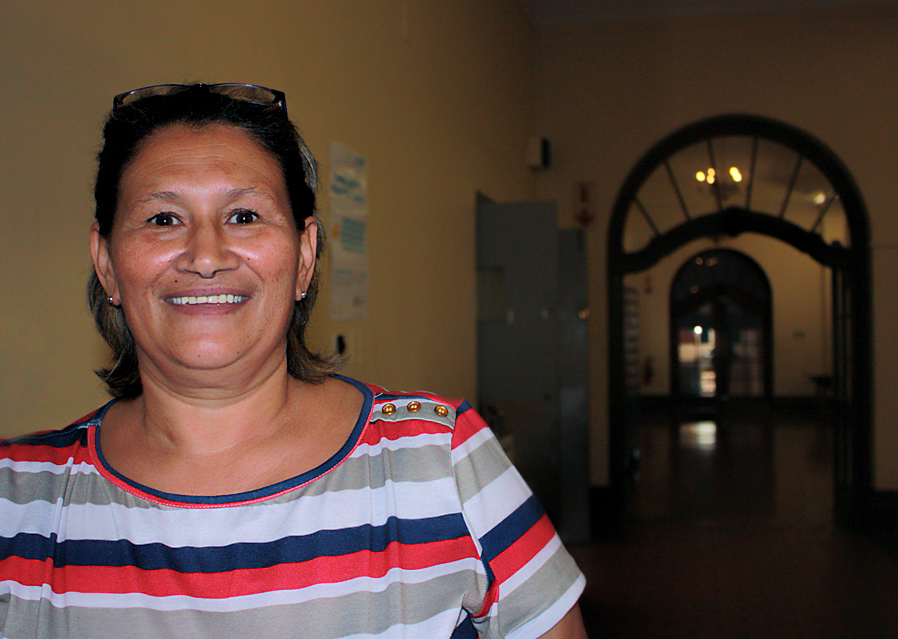
Glenn introduced me to Ann Anderson, Food Services Controller at Clarendon House, and she took me on a tour of the kitchens. The first thing I noticed were more water saving posters on the walls. Ann is the winner of a UCT Green Award and a keen recycler both at work and at home. Most of the water-saving innovations she showed me are her own ideas.
Instead of using a high-pressure unit to hose down crockery before it goes into the industrial dish washer, the dishes are instead pre-rinsed in a trough. This water is re-used until it needs changing. ‘We avoid letting taps run’, she explains,’and rather use a sink of water when we can.’ Only the necessary amount of water is used for boiling so that as little as possible is thrown away. In addition, floors are now cleaned using buckets and are no longer hosed down, which was the old method. The industrial-sized dish washer is only run when every rack is full to use water efficiently. Wherever possible, chemical sanitizers, rather than water, are used for wiping down food preparation surfaces and dining tables. ‘My staff are only too pleased to comply; they will point each other out if these measures are not followed,’ she smiles.
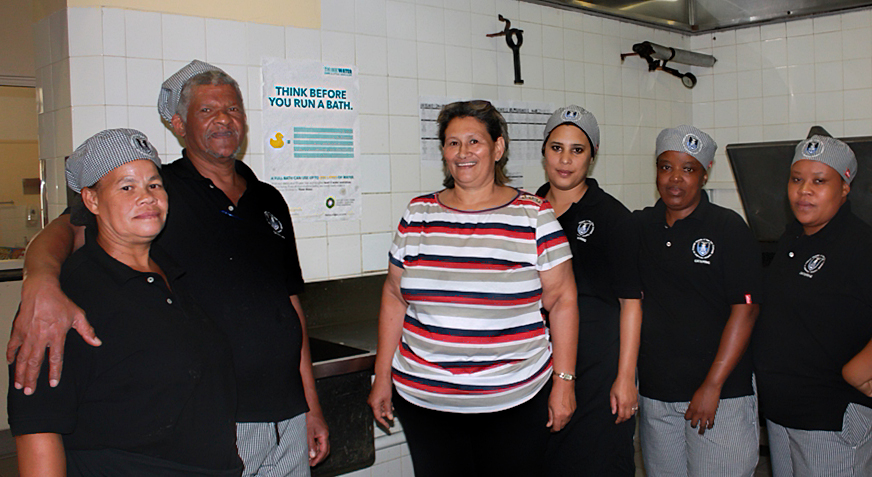
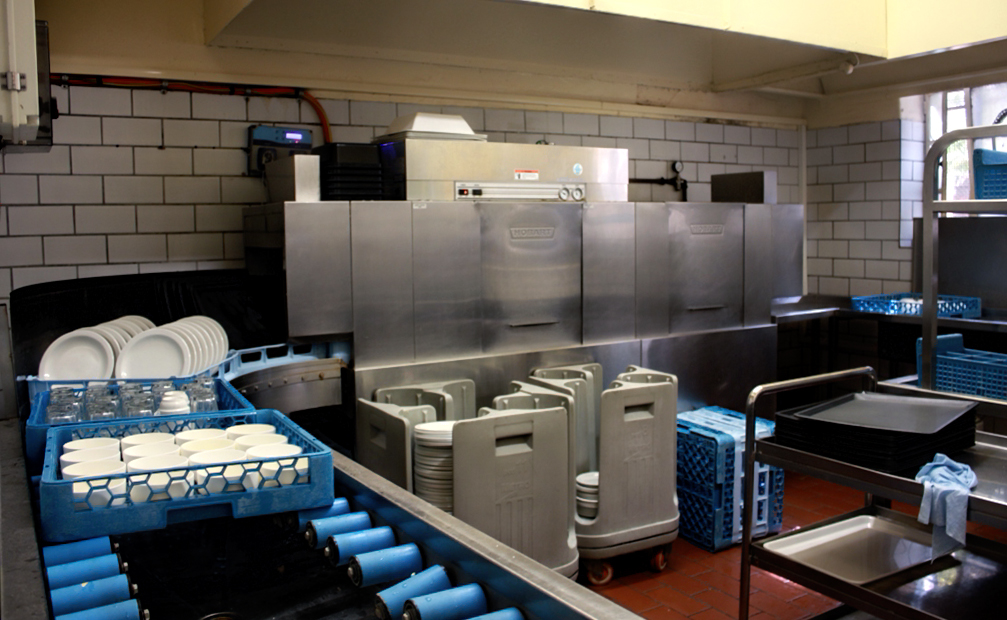
Buildings, bathrooms and laundries
I met Wilson Pieterse, Facilities Coordinator at Clarendon House. He took me on a tour of the bathrooms and laundry. In answer to my question about grey water systems, he explained that, while this might be good on a small scale at home, a proper, safe and sanitary grey water system would be very costly to install at a large building like Clarendon House. Instead most water-saving measures are about behavior, for example brushing teeth with a cup of water rather than a running tap.
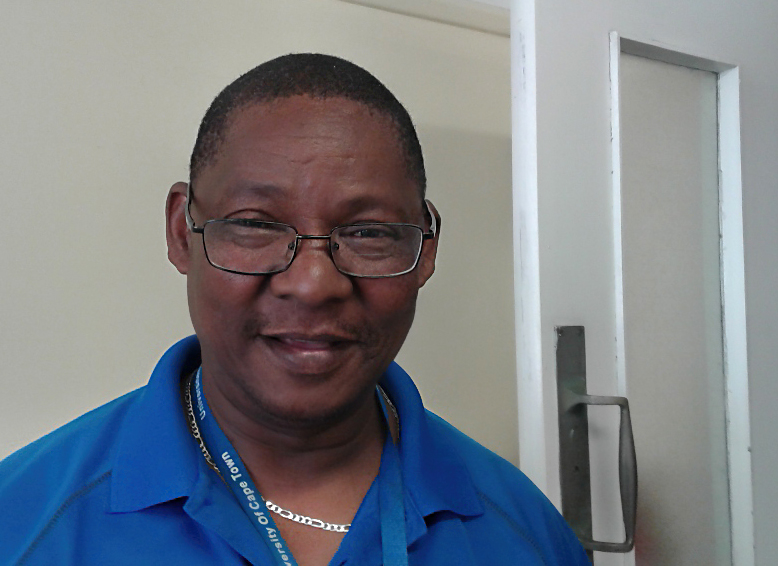
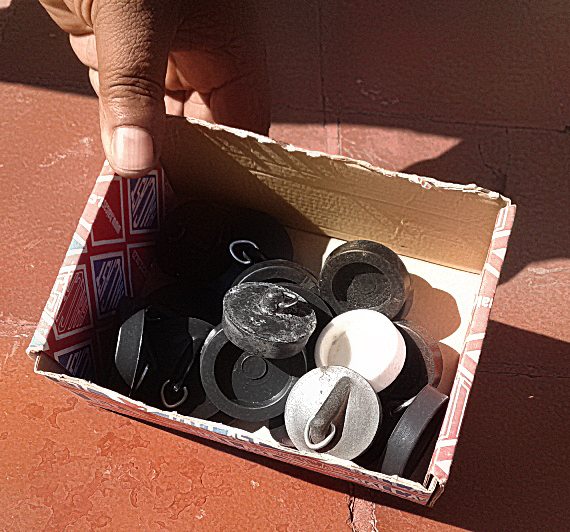
Bath plugs have been stowed away to ensure that only showers are taken. Photo: Elaine Woodbridge |
The residence has a 3-minute shower policy and all plugs have been removed from the baths to indicate they should not be used. ‘We are trying to get the message across that a power-shower is more than adequate and that students can even turn off the water while soaping up in order to save’, says Glenn. ‘Eventually we would like to replace all baths with shower facilities’, adds Wilson. One change that has been increasingly applied is to convert UCT’s old-fashioned water-wasting toilet cisterns to more efficient Flush Master systems. The large, 400-litre boilers and many lengths of pipe that service the bathrooms and laundries are kept in top condition to ensure they operate efficiently and there are no leaks. ‘We have a 24-hour response time to leaks’, explains Wilson, ‘there are no dripping pipes around here’ he says proudly. In his daily maintenance routine, Wilson inspects the grounds for any standing water as this could indicate a leaking underground pipe and would be a priority to fix. All Sub-Wardens and those students on duty after hours know where the stopcocks are so that a boiler or pipe can be shut off quickly in the event of it bursting. In laundries, students are asked to reduce their washing by limiting it to 110 litres per cycle per week. In line with Level 3 water restrictions, certain ‘luxuries’ have been put aside, like the filling of swimming pools not used for sport, and regular window cleaning. |
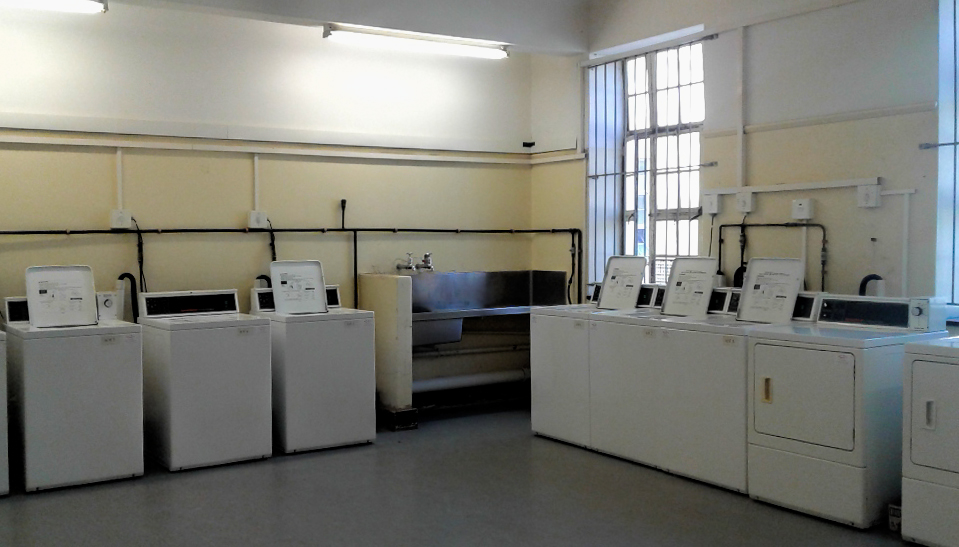
Monitoring and challenges
One of the challenges about saving water at UCT is that staff and students don’t know in concrete terms what their daily consumption is, or to what extent it is affected by their water saving measures. Only the Theewaterskloof Dam level exists as a figure that can be communicated but it is not close enough to home. Individual residence usage figures are difficult to obtain. Although RFOs and Head Students diligently promote water-saving, they say students want to know what their consumption is, and they want feedback on their water saving.
Ideally, Glenn would like to have live screens up in the foyers and dining halls of all residences giving up-to-date statistics on water usage together with other green and health related notices. ‘We’d then be able to make it competitive’, he says, ‘with, for example, rewards like a braai for the residence that saves the most, or funds towards further greening improvements’. At the moment students police themselves but a reward system would be a better way to achieve and sustain results.

Conclusion
With increasing populations and frequent droughts, and because it makes good sense, water saving must continue. UCT needs to look at a combination of campaigns to change behavior, better monitoring and information about usage together with a practise of rewarding good savers, and the further implementation of water efficient systems on campus.
Contact Residence Facilities Manager Glenn von Zeil at the Department of Student Affairs, on glenn.vonzeil@uct.ac.za or 021 650 1039.